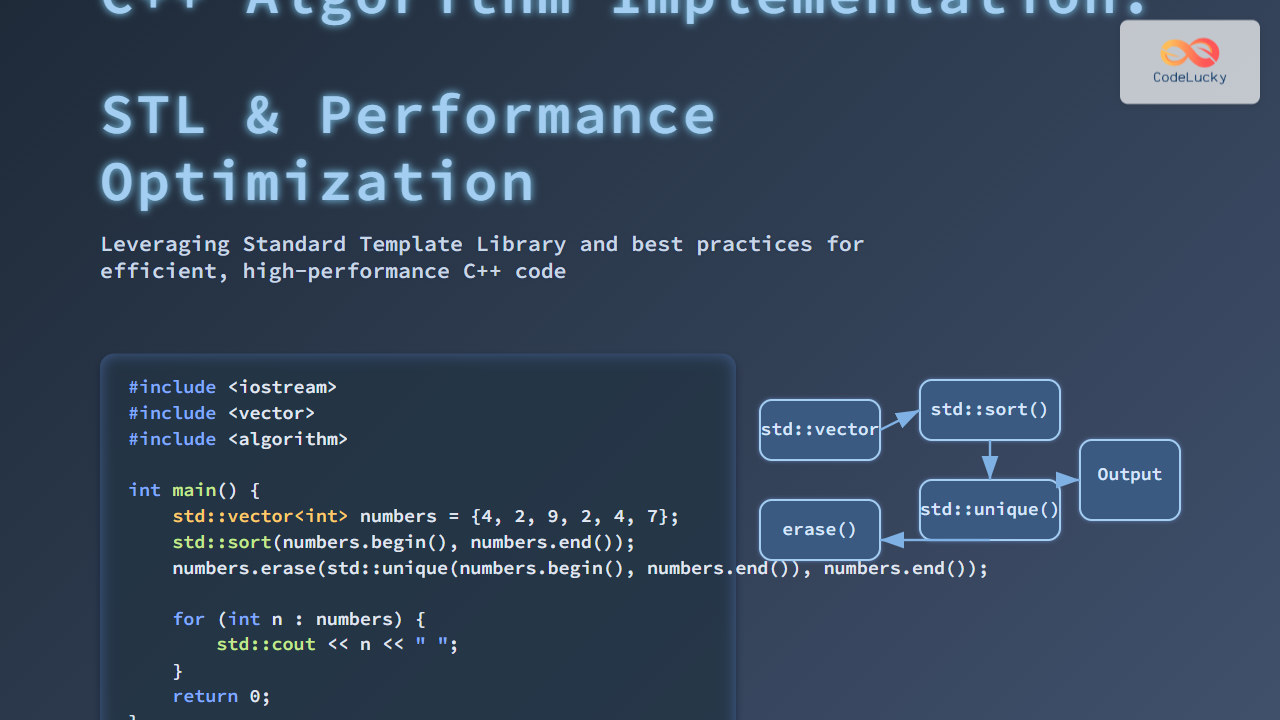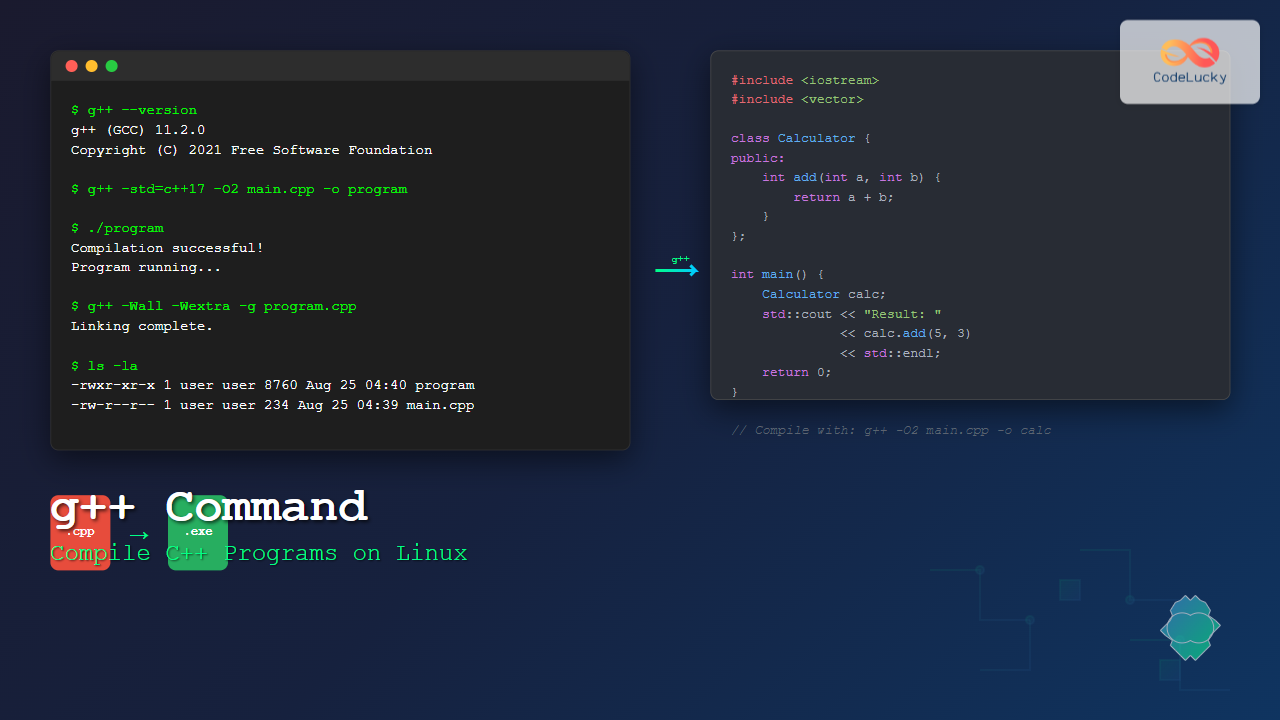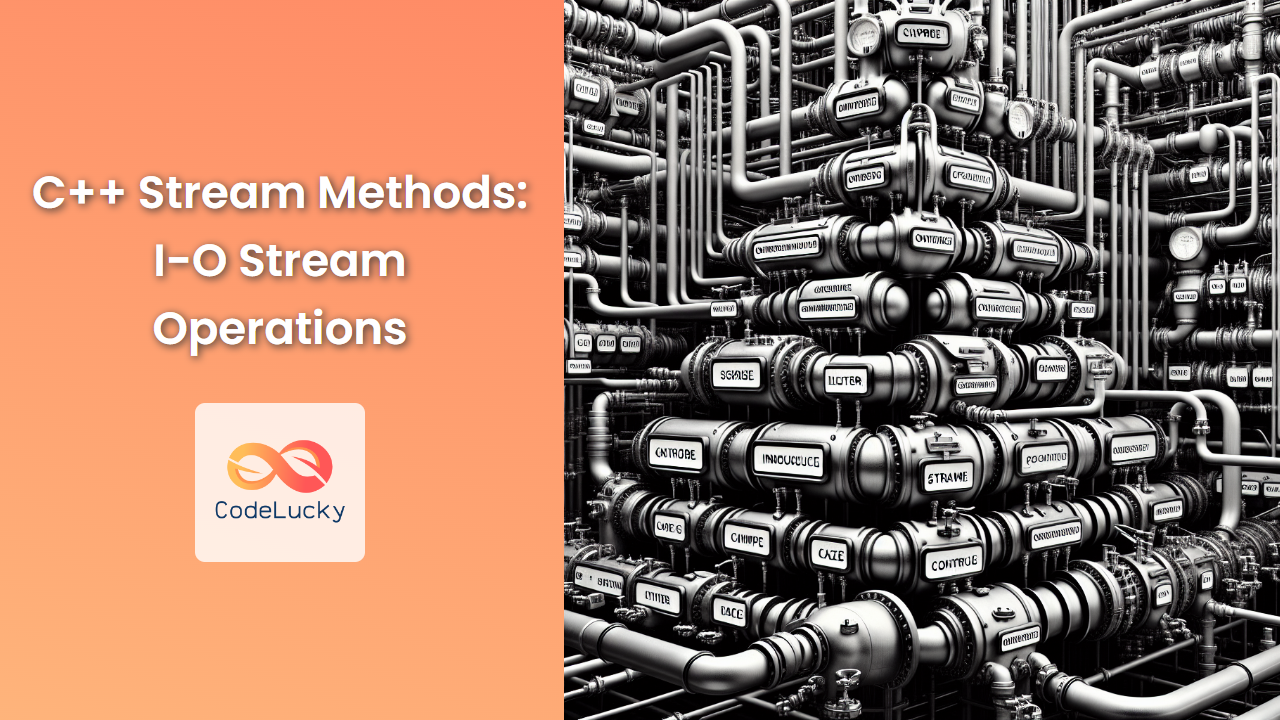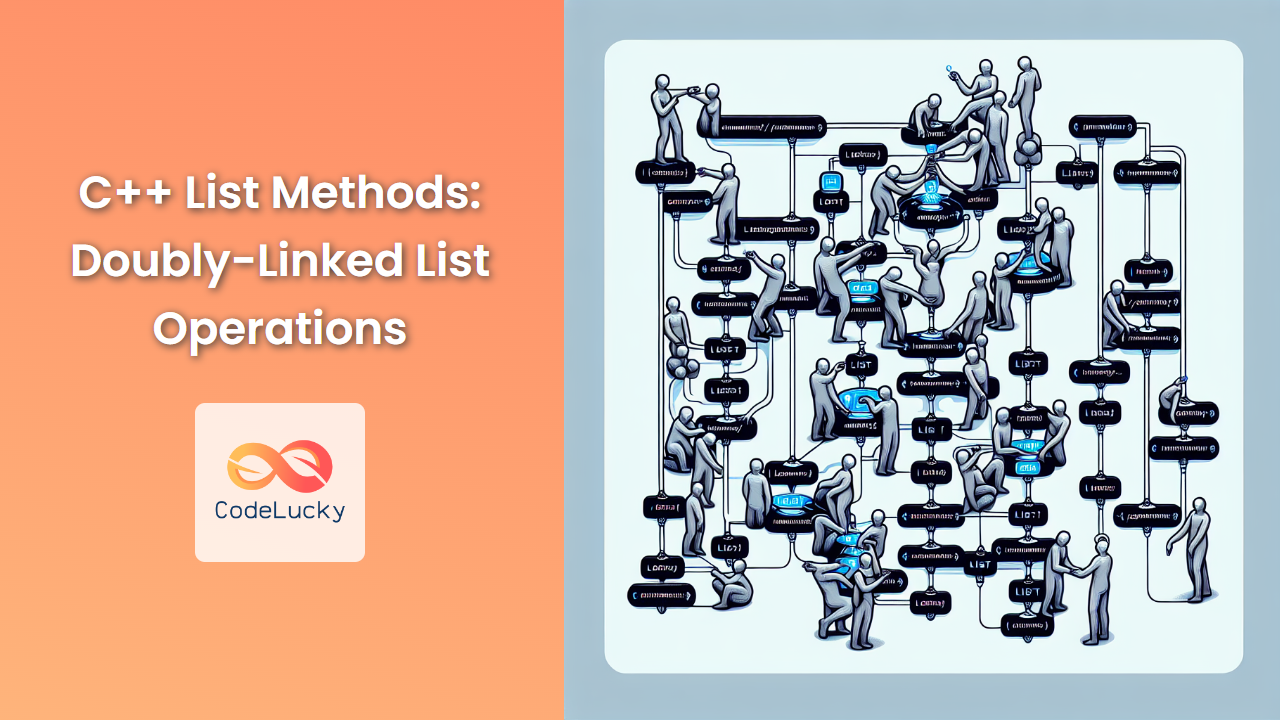In the world of C++ programming, type casting is a powerful tool that allows developers to convert data from one type to another. This process is essential for maintaining type safety, improving code flexibility, and optimizing performance. In this comprehensive guide, we'll dive deep into the intricacies of C++ type casting, exploring both implicit and explicit conversions.
Understanding Type Casting in C++
Type casting in C++ refers to the process of converting a value from one data type to another. This conversion can happen automatically (implicit casting) or be explicitly specified by the programmer (explicit casting). Let's explore each of these in detail.
Implicit Type Casting
Implicit type casting, also known as automatic type conversion, occurs when the compiler automatically converts one data type to another without any explicit instruction from the programmer. This typically happens when:
- The source and destination types are compatible
- The destination type has a larger size than the source type
🔍 Let's look at some examples to understand implicit type casting better:
#include <iostream>
int main() {
int integerNumber = 10;
double doubleNumber = integerNumber; // Implicit conversion from int to double
std::cout << "Integer: " << integerNumber << std::endl;
std::cout << "Double: " << doubleNumber << std::endl;
return 0;
}
Output:
Integer: 10
Double: 10
In this example, the integer value is implicitly converted to a double. The compiler performs this conversion automatically because a double can represent all values that an int can, without loss of precision.
⚠️ However, implicit casting can sometimes lead to unexpected results or loss of data. Consider this example:
#include <iostream>
int main() {
double pi = 3.14159;
int approximatePi = pi; // Implicit conversion from double to int
std::cout << "Original pi: " << pi << std::endl;
std::cout << "Approximate pi: " << approximatePi << std::endl;
return 0;
}
Output:
Original pi: 3.14159
Approximate pi: 3
Here, the fractional part of the double is truncated when converted to an int, resulting in loss of precision.
Explicit Type Casting
Explicit type casting, as the name suggests, is when the programmer explicitly tells the compiler to convert one data type to another. C++ provides several ways to perform explicit type casting:
- C-style cast
- Static cast
- Dynamic cast
- Reinterpret cast
- Const cast
Let's explore each of these methods in detail.
1. C-style Cast
The C-style cast is the simplest form of explicit casting, inherited from the C language. It's denoted by placing the target type in parentheses before the value to be converted.
#include <iostream>
int main() {
double pi = 3.14159;
int approximatePi = (int)pi; // C-style cast
std::cout << "Original pi: " << pi << std::endl;
std::cout << "Approximate pi: " << approximatePi << std::endl;
return 0;
}
Output:
Original pi: 3.14159
Approximate pi: 3
While simple to use, C-style casts are not type-safe and can lead to unexpected behavior if used carelessly.
2. Static Cast
The static_cast operator is the most commonly used casting operator in C++. It performs compile-time type checking and is generally safer than C-style casts.
#include <iostream>
int main() {
double pi = 3.14159;
int approximatePi = static_cast<int>(pi);
std::cout << "Original pi: " << pi << std::endl;
std::cout << "Approximate pi: " << approximatePi << std::endl;
return 0;
}
Output:
Original pi: 3.14159
Approximate pi: 3
static_cast is particularly useful for converting between related types, such as different numeric types or up and down a class hierarchy.
3. Dynamic Cast
The dynamic_cast operator is used primarily for safe downcasting in inheritance hierarchies. It performs runtime type checking and is the only cast that may have a runtime cost.
#include <iostream>
class Base {
public:
virtual ~Base() {}
};
class Derived : public Base {
public:
void derivedFunction() {
std::cout << "This is a derived class function." << std::endl;
}
};
int main() {
Base* basePtr = new Derived();
Derived* derivedPtr = dynamic_cast<Derived*>(basePtr);
if (derivedPtr) {
derivedPtr->derivedFunction();
} else {
std::cout << "Cast failed!" << std::endl;
}
delete basePtr;
return 0;
}
Output:
This is a derived class function.
In this example, dynamic_cast safely converts a pointer to a base class to a pointer to a derived class, performing a runtime check to ensure the conversion is valid.
4. Reinterpret Cast
The reinterpret_cast operator is the most dangerous cast and should be used with extreme caution. It can convert any pointer type to any other pointer type, even unrelated types.
#include <iostream>
int main() {
int number = 42;
int* pNumber = &number;
// Reinterpret the int pointer as a char pointer
char* pChar = reinterpret_cast<char*>(pNumber);
// Print the bytes of the integer
for (size_t i = 0; i < sizeof(int); ++i) {
std::cout << "Byte " << i << ": " << static_cast<int>(pChar[i]) << std::endl;
}
return 0;
}
Output (may vary depending on system architecture and endianness):
Byte 0: 42
Byte 1: 0
Byte 2: 0
Byte 3: 0
This example uses reinterpret_cast to view the individual bytes of an integer. While powerful, this type of cast can easily lead to undefined behavior if misused.
5. Const Cast
The const_cast operator is used to add or remove the const qualifier from a variable. It's the only C++ style cast that can do this.
#include <iostream>
void printAndModify(const int* ptr) {
std::cout << "Original value: " << *ptr << std::endl;
// Remove const to modify the value
int* mutablePtr = const_cast<int*>(ptr);
(*mutablePtr)++;
std::cout << "Modified value: " << *ptr << std::endl;
}
int main() {
int value = 10;
printAndModify(&value);
return 0;
}
Output:
Original value: 10
Modified value: 11
In this example, const_cast is used to remove the const qualifier, allowing modification of a value that was originally passed as constant. However, using const_cast to modify a value that was originally defined as const leads to undefined behavior.
Best Practices for Type Casting in C++
When working with type casting in C++, it's important to follow these best practices:
-
🎯 Prefer C++ style casts (
static_cast,dynamic_cast,reinterpret_cast,const_cast) over C-style casts. They are more specific and safer. -
🔍 Use
static_castfor most conversions between related types. -
🛡️ Use
dynamic_castwhen you need runtime type checking, especially when working with polymorphic types. -
⚠️ Avoid
reinterpret_castunless absolutely necessary. It's the most dangerous cast and can easily lead to undefined behavior. -
🔒 Use
const_castsparingly. Removingconstshould be a last resort and done with extreme caution. -
🧠 Always consider whether a cast is truly necessary. Often, a better design can eliminate the need for casting altogether.
-
📝 Document your casts, especially when using
reinterpret_castorconst_cast, to explain why they are necessary and safe in that context.
Conclusion
Type casting in C++ is a powerful feature that allows for flexible and efficient code. Understanding the differences between implicit and explicit casting, as well as the various forms of explicit casting available in C++, is crucial for writing safe and effective code.
While implicit casting can be convenient, it's important to be aware of potential precision loss or unexpected behavior. Explicit casting gives you more control but requires careful consideration to ensure type safety.
By following best practices and using the appropriate type of cast for each situation, you can harness the power of type casting to write more flexible, efficient, and maintainable C++ code. Remember, with great power comes great responsibility – use type casting wisely!


















